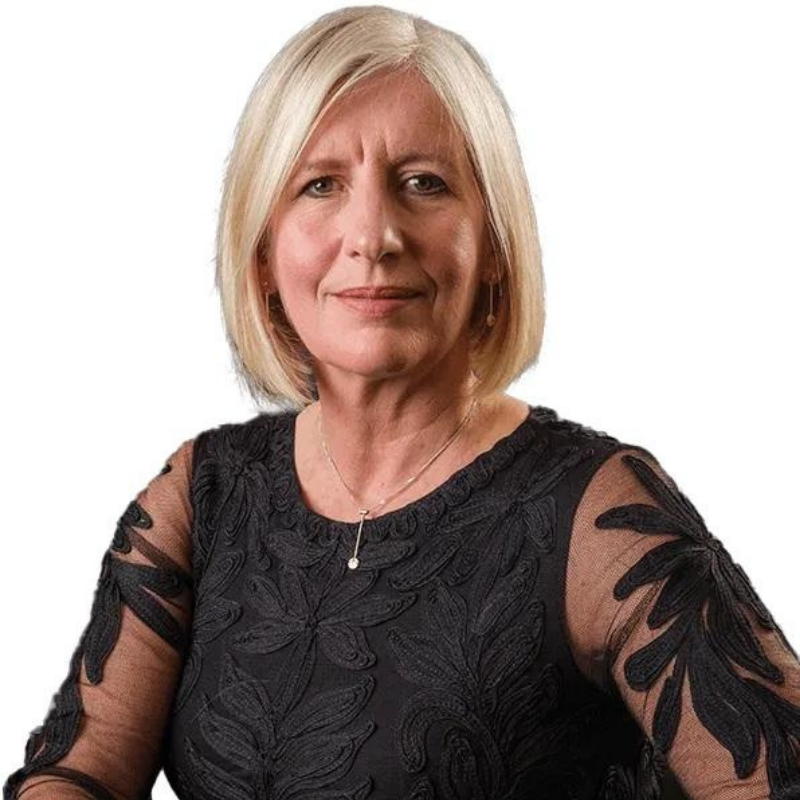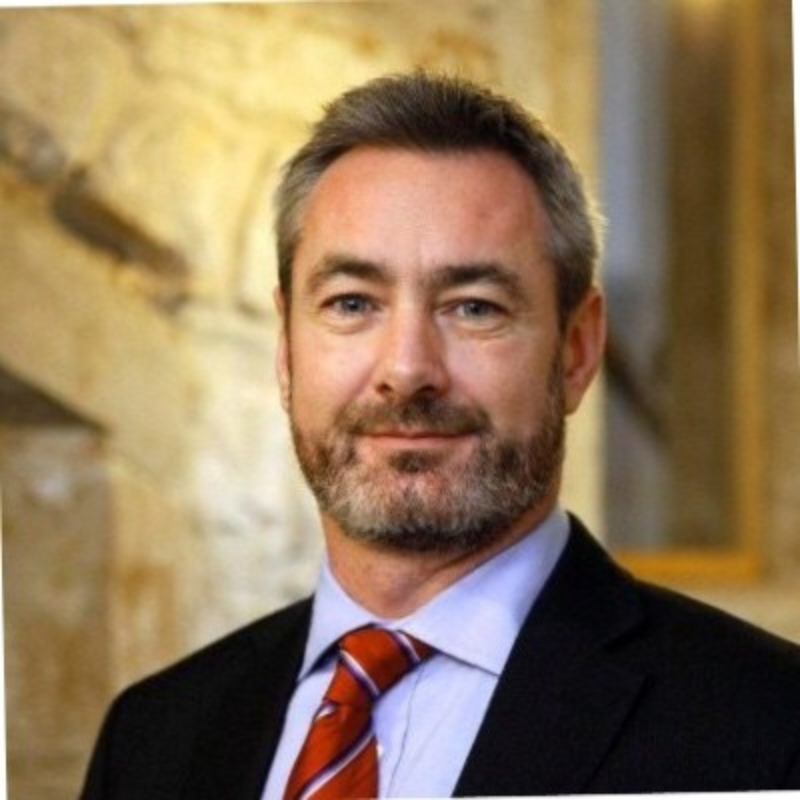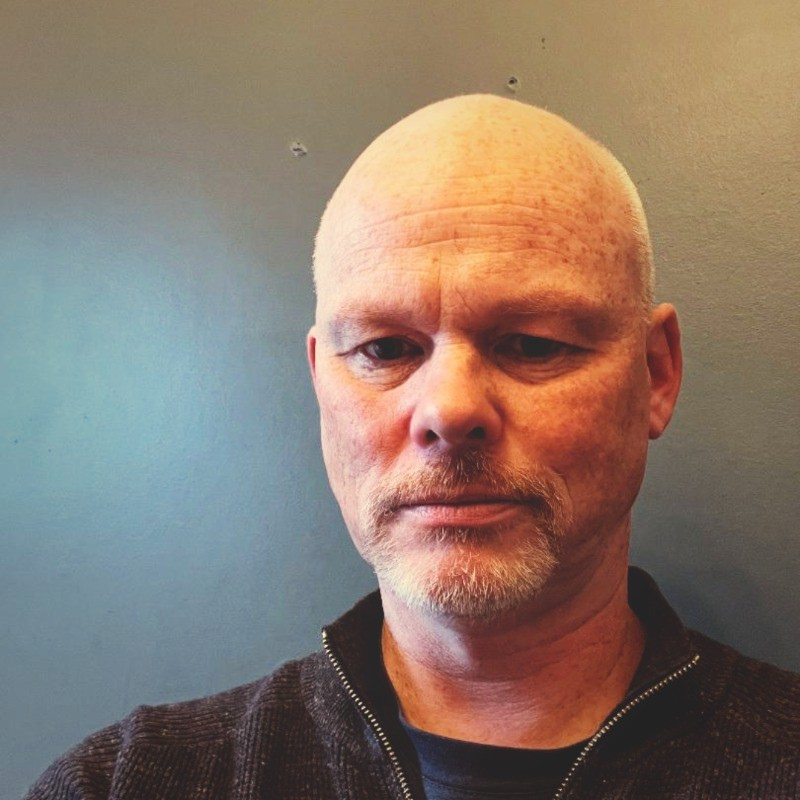The Scottish Government, Scottish Parliament, Ministers and MSPs control legislation, policy and spending decisions affecting the activities of all organisations and people in Scotland. Informed, good decision making is important in good times, but absolutely critical in bad times. These remain difficult times. War in Ukraine, a weak economy, a new UK Government facing tough public finances and the unpredictable and imminent consequences of a second Trump Presidency - these all require the best judgement. So, in the midst of wave after wave of uncertainty buffeting Scotland's public services, private sector and third sector, it is essential to understand how to effectively influence, inform and connect with the key decision makers as they respond to the challenges ahead.
This conference examines how Scottish Government, Scottish Parliament, Ministers and MSPs work and explains the policy and media context within which decision making in those bodies takes place. It is intended for people and organisations that need to inform and support policy making and decision making in our institutions.
The ways in which policy is made, legislation is developed and spending decisions are taken is subject to both specific processes and to a range of external and internal influences. Understanding what those processes are and how both these institutions and the individuals within them work is essential. So too is knowing the importance of the media and the political context in which government operates. As is being aware of the regulatory and political rules and conventions within which influencing takes place.
The purpose of this conference is to provide you with a step-by-step guide to making your voice heard in the corridors of power. It will give insight into the relationship between Government, Parliament politicians and media and explain the various stages and ways in which policy is developed and how decision making can be influenced.
Whether your interest is in development of legislation, policy making, ongoing constitutional change or spending decisions, the how and why of government and parliamentary decision making - and context in which those decisions are made - is pivotal. The conference looks at the institutions that matter, the types of external influence that count and what you need know about the instruments and practices needed to to be heard at the highest level.
If you want to develop a better understanding of how government works in Scotland, and to be a weather maker on policy before it is made rather than reading what policy has become once decisions are taken, then knowing how the system really works - and how to influence it - is essential.
Benefits of attending
Who should attend

Chair
Chartered Institute of Public Relations Scotland

Deputy Leader of the Scottish Labour Party, Shadow Cabinet Secretary for NHS Recovery, Health and Social Care and Drugs Policy and MSP for Dumbarton

Managing Director
Ipsos Scotland

Director of Public Policy
Pinsent Masons

Information Governance Solicitor
The General Teaching Council for Scotland

Founder/Director
Message Matters

Lobbying Registrar
The Scottish Parliament

Former Head of Communications to First Minister of Scotland

Chief Executive
Scottish Legal Complaints Commission
09:00 Chair's opening remarks
Neil Stevenson
Chief Executive, Scottish Legal Complaints Commission
slcccomplaints StevensonLaw
Session 1: Influencing – understanding Parliament, lobbying rules and the current political context
09:05 Keynote – understanding the Scottish Parliament and Scottish Government
Jackie Baillie MSP, Deputy Leader of the Scottish Labour Party, Shadow Cabinet Secretary for NHS Recovery, Health and Social Care and Drugs Policy and Member of the Scottish Parliament for Dumbarton
ScotParl JackieBMSP
09:20 Question and answer session
09:35 Complying with the Lobbying Register – good practice and new developments
Billy McLaren, Lobbying Registrar, The Scottish Parliament
SP_LobbyingScot ScotParl
09:50 The Scottish and UK political context – what is the state of play and where are we headed?
Andy Maciver, Founder/Director, Message Matters
MessageTweet AKMaciver HolyroodSources
10:05 Question and answer session
10:20 Comfort break
Session 2: The decision makers and how they work
10:35 The Scottish Parliament – how it works
Fiona Killen, Lawyer, Specialising in Information Law, Public Law and Regulatory Procedures
10:50 Understanding the political parties – what do you need to know?
Andrew Henderson, Director of Public Policy, Pinsent Masons
Pinsent_Masons
11:05 Inside Scottish Government
Stuart Nicolson, former Head of Communications to the First Minister of Scotland
11:20 Question and answer session
11:35 Comfort break
Session 3: How to influence
11:50 Messaging, media and social media – how to use them
Stewart Argo, Chair, Chartered Institute of Public Relations Scotland
CIPR_Scotland
12:05 Understanding what the public think and want
Dr Emily Gray, Managing Director, Ipsos Scotland
IpsosScotland
12:20 Question and answer session
12:35 Chair's closing remarks
Neil Stevenson
Chief Executive, Scottish Legal Complaints Commission
slcccomplaints StevensonLaw

Stewart Argo
Chair
Chartered Institute of Public Relations Scotland
With three decades of experience in communications, Stewart is happy to talk on almost any issue, but is particularly keen to share practical insights on:
• Measuring campaign impact: Focusing on the importance of evaluation in communications to demonstrate the real effects of campaigns, particularly in achieving business outcomes and driving behaviour change.
• Leadership communication: Helping leaders improve how they communicate their vision, both internally and externally, to align teams and engage stakeholders effectively.
• Crisis and reputation management: Lessons from managing high-profile and sensitive issues across the public and private sectors, with an emphasis on transparency and long-term reputation building.
• Corporate and B2B communication: Practical strategies for businesses to enhance corporate reputation and manage stakeholder relationships more effectively.
Naturally, Stewart can also talk about the benefits of professional membership organisations and the contribution of PR, public affairs and marketing communications generally.
Professional and personal background
Stewart began his career with BBC Radio Shetland before moving into public relations. His initial roles were with NHS Grampian and then the Scottish Environment Protection Agency, before he joined the City of Edinburgh Council.
Stewart then moved into agency, first with Weber Shandwick and then BIG Partnership, where he is responsible for its Edinburgh PR and public affairs teams.
His campaign and issues experience ranges from student finance to square sausages, container terminals to communicable diseases, fish farming to ferries, chemistry to crime, radioactivity to rewilding, lighthouses to life sciences and other forced alliterative pairs!

Jackie Baillie MSP
Deputy Leader of the Scottish Labour Party, Shadow Cabinet Secretary for NHS Recovery, Health and Social Care and Drugs Policy and MSP for Dumbarton
Jackie has represented Dumbarton Constituency since 1999 when the Parliament was first created. Prior to this she worked both in the public and voluntary sector most recently as a Community Economic Development Manager for a local authority.
Following the inception of the Scottish Parliament in 1999, she served as Deputy Minister for Communities under then First Minister Donald Dewar, before being promoted to Social Justice Minister.
After the May 2007 Scottish Parliament elections Jackie returned to Labour’s front benches as Shadow Minister for Parliamentary Business. In 2008 she was appointed to a newly created position as Labour’s Chief of Staff in the Scottish Parliament before becoming Shadow Cabinet Secretary for Health, Wellbeing and Cities Strategy in 2009.
Jackie has also since taken on roles as Shadow Cabinet Secretary for Social Justice, Equalities and Welfare and spokesperson for the Economy, Jobs and Fair Work. She was also the first woman to take on the role of Shadow Cabinet Secretary for Finance.
In 2020, she became Deputy Leader of Scottish Labour and is now Shadow Cabinet Secretary for NHS Recovery, Health and Social Care and Drugs Policy.

Emily Gray (Dr)
Managing Director
Ipsos Scotland
Dr. Emily Gray is Managing Director of Ipsos in Scotland. Based in Edinburgh, she leads a team of researchers in Scotland specialising in social research and evaluation for public, private and voluntary sector clients. Emily brings 19 years’ experience of quantitative, qualitative and mixed-methods research, including 15 years at Ipsos.
Before joining the Scotland team in 2017, Emily held a succession of roles at Ipsos, including heading up the company’s central government research, followed by senior roles in its international social research team and public sector communications unit. Prior to her time at Ipsos, she worked as an academic researcher specialising in political communications.
Emily brings expertise in public opinion, Scottish politics, climate change and the environment and is a senior member of Ipsos’ Climate Change and Sustainability Practice. She also has overall responsibility for Ipsos’s work on the Scottish Crime and Justice Survey, one of the Scottish Government’s three flagship random probability social surveys.
Emily frequently comments on public opinion on current affairs on TV and radio, and was Ipsos’s lead spokesperson for the 2021 Scottish Parliament Election. She has led and contributed to many of Ipsos’s published reports in her areas of expertise. She is an experienced presenter who has presented Ipsos research and insight to many audiences in Scotland, the wider UK and internationally.

Andrew Henderson
Director of Public Policy
Pinsent Masons
Andrew Henderson joined Pinsent Masons in 2016, before which he was Head of Public Affairs and External Relations at a new challenger bank being created from within one of the UK’s largest financial services companies.
Andrew has over 20 years’ experience in the public policy and strategic communications industry, operating across Edinburgh, London and the UK regions, and has advised a broad range of major PLCs, SMEs, third sector, and other organisations on their dealings with government, media and other influential stakeholders.
Educated in Politics at the University of Edinburgh, Andrew also has an MBA and is a member of both the Chartered Institute of Marketing (CIM) and the Chartered Institute of Public Relations (CIPR).
Formerly a board member of Citizens Advice Edinburgh, and the Rock Trust, Andrew currently sits on the board of Edinburgh World Heritage.

Fiona Killen
Information Governance Solicitor
The General Teaching Council for Scotland
Fiona is one of the most highly-regarded lawyers in Scotland for public, parliamentary and administrative law. She has a deep working knowledge and expertise across a range of legal areas including public and regulatory law, data protection, freedom of information, human rights, corporate governance and parliamentary affairs.
With a background in both contentious and non-contentious matters, she is highly experienced in a wide range of sectors, with a particular focus on education as well as the public sector.
She has in-depth knowledge and first-hand insight of how Governments and Parliaments work on a day-to-day basis, alongside extensive experience of legislative procedures and public sector governance.
She has worked in the Scottish Parliament, UK Parliament and the US Senate in legal and political roles, and in higher education. She was a member of the Scottish Government’s Human Rights Leadership Task Force and sits on the Law Society of Scotland’s sub-committees on constitutional law, human rights, privacy law and its freedom of information working group.
Fiona is ranked by Chambers in Band 1 for both Administrative & Public Law and Parliamentary & Public Affairs. She is ranked within Legal 500’s Hall of Fame for Parliamentary & Public Affairs, and as a Leading Individual for Education Law.

Andy Maciver
Founder/Director
Message Matters
Andy has over 20 years of experience in politics and PR in the public, private and charity sectors and, since co-founding Message Matters, in consultancy.
His expertise is in strategic communications and corporate positioning, helped by long-standing relationships across the political spectrum and throughout the media. He is also a regular independent political commentator on the BBC and STV, has a regular column in The Herald, and is co-host of Holyrood Sources, the most listened to Scottish politics podcast.

Billy McLaren
Lobbying Registrar
The Scottish Parliament
Billy McLaren was appointed as Lobbying Registrar in October 2016 following the passing of the Lobbying (Scotland) Act in the Scottish Parliament in 2016.
Previously Billy worked in Westminster, supporting the UK’s Attorney General as Assistant Private Secretary and then in Whitehall and Edinburgh, as part of Donald Dewar’s private office team when Secretary of State for Scotland and then Scotland’s First Minister.
He led a project team coaching civil servants to provide focused briefings for Scottish Ministers, creating, updating and storing this key material on an IT system developed and implemented to operate across all Scottish Government departments.
Following that, he worked in Glasgow on policy, evaluation and IT projects delivering programmes under a £350 million package of European regional development and social funds for Scotland.
Billy was recruited in 2009 to the Scottish Parliament, as Head of the International Relations Team.
From 2011 to 2016 he served as the Principal Private Secretary to the Scottish Parliament’s Presiding Officer (Speaker) during the Parliament's first ever five-year session.

Stuart Nicolson
Former Head of Communications to First Minister of Scotland
Stuart Nicolson worked in the Scottish Government for 15 years, most of which was spent as a senior advisor in the role of head of communications and senior spokesperson for two First Ministers of Scotland.
His time in government encompassed some of the most era-defining moments in recent Scottish and UK politics, including the 2014 independence referendum, the Brexit referendum of 2016 and its aftermath, and the governmental response to the Covid-19 pandemic.

Neil Stevenson
Chief Executive
Scottish Legal Complaints Commission
Background
Neil's previous background combines significant experience of regulation and complaints, and of the Scottish legal services market.
Neil sat on the Council of the Advertising Standards Authority for six years, involved in both the governance of the organisation and in adjudication on complaints within the £20 billion UK advertising industry. He was the Senior Independent Director and Chair of their Audit and Risk Committee.
Prior to this he had been appointed by the Privy Council to sit on the General Dental Council, the regulatory and complaints body for 104,000 dental professionals in the UK. He served two four-year terms on the Board as well as chairing the Remuneration Committee.
Previously Neil worked with the Law Society of Scotland for 11 years, latterly as their Director of Representation and Professional Support. He has held several other Executive and Non-Executive Director roles in organisations and charities spanning the legal sector, healthcare, consultancy, and oil and gas.
He holds a Law degree from Edinburgh University and a Masters in Quality Management from Birmingham University.
Current appointments
Neil currently sits as a non-executive director on the Standards and Regulation Board of the Royal Institute of Chartered Surveyors. The Board sets the standards for over 130,000 members and candidates operating in the development and management of land, real estate, construction and infrastructure across more than 140 countries globally.
Neil is also Chair of Norton Park, a charity and social enterprise which owns property in Edinburgh and runs this as a business hub for charities (with around 20 tenants) and as a third sector conference centre. He is Chair of Albion Equity Ltd., a property ownership company which is part of the Norton Park group.
This conference will take place online.
How to book
You can book to attend, or order the video only, in 3 ways:
Conference fees
GROUP DISCOUNT – organisations booking 3 ore more delegtes will recive every third delegate place free of charge (please complete further forms if necessary)
PLEASE NOTE – the option of ordering the video recording only is intended for any individual who would normally have attended the event but – for whatever reason – is unable to do so on the day. It is not permissible to share this recording. Please contact us if you wish to share this recording. See our terms and conditions for further information.
Payment
We do not currently accept payments online and will send you an invoice.
You have the option of paying by BACS or card.
BACS details will be included on the invoice.
If you wish to pay by card, please tick the appropriate box on the booking form and a member of our staff will contact you by telephone to take the payment. Alternatively you may call 0131 556 1500.
Terms and conditions
By placing this booking, you agree to the full terms and conditions found via the link at the foot of our website.
Book delegate places or purchase video recording.

